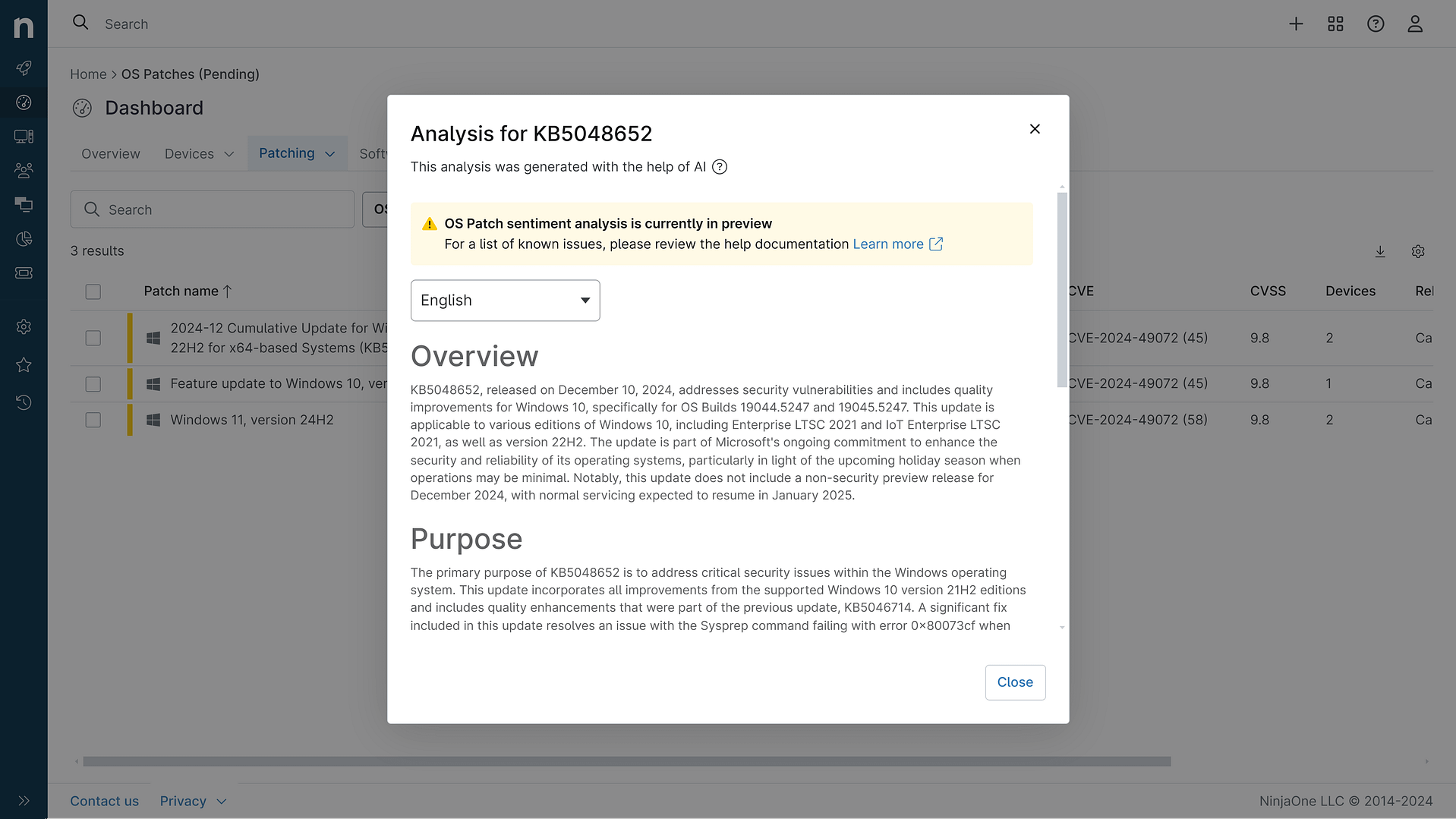KB5041585: Overview with user sentiment and feedback
Last Updated December 23, 2024
Probability of successful installation and continued operation of the machine
Overview
KB5041585, released on August 13, 2024, addresses security vulnerabilities in Windows 11, specifically for OS Builds 22621.4037 and 22631.4037. This update is applicable to all editions of Windows 11 version 22H2 and 23H2. The update is crucial as it includes quality improvements and security enhancements that are essential for maintaining system integrity and performance. Notably, it is part of a series of updates that ensure users are protected against emerging threats and vulnerabilities, particularly in the context of the evolving security landscape.
The update also serves as a reminder for users of Windows 11 version 22H2, as the Home and Pro editions will reach their end of service on October 8, 2024. Post this date, these editions will only receive security updates, emphasizing the importance of upgrading to the latest version to continue receiving comprehensive support and updates.
General Purpose
The primary purpose of KB5041585 is to enhance the security of Windows 11 by addressing critical vulnerabilities. This update includes improvements from previous updates, specifically KB5040527, and introduces several key changes. One significant change is related to BitLocker, where users may encounter a recovery screen upon startup if device encryption is enabled. Additionally, the update addresses a specific vulnerability (CVE-2024-38143) that affects the lock screen functionality, particularly the inability to connect to Wi-Fi using the Windows user account checkbox. Furthermore, the update implements Secure Boot Advanced Targeting (SBAT) to prevent the execution of vulnerable Linux EFI bootloaders, which may affect dual-boot configurations. Users are advised to consult their Linux vendors for updated ISO images if they experience boot issues after applying this update.
General Sentiment
The general sentiment surrounding KB5041585 appears mixed. While the update is essential for maintaining security and includes important improvements, users have reported issues, particularly with dual-boot setups involving Linux. The known issue regarding the failure to boot Linux due to the SBAT settings has raised concerns among users who rely on dual-boot configurations. This has led to frustration, especially for those who may not be aware of the implications of the update. However, the update is still viewed as necessary for overall system security, and many users recognize the importance of addressing vulnerabilities, even if it comes with some temporary inconveniences.
Known Issues
- Users with dual-boot setups may experience boot failures for Linux, displaying an error message related to SBAT data verification.
- The SBAT update may not be applied correctly on some devices due to custom dual-boot configurations, leading to security policy violations.
- A workaround involves setting specific registry keys on Windows-only systems after installing subsequent updates to ensure SBAT security is applied correctly.
Disclaimer: We take measures to ensure that AI-generated content is of the highest possible quality, but we cannot guarantee its accuracy and recommend that users do their own independent research. Generated on 2024-12-21 08:32 PM
